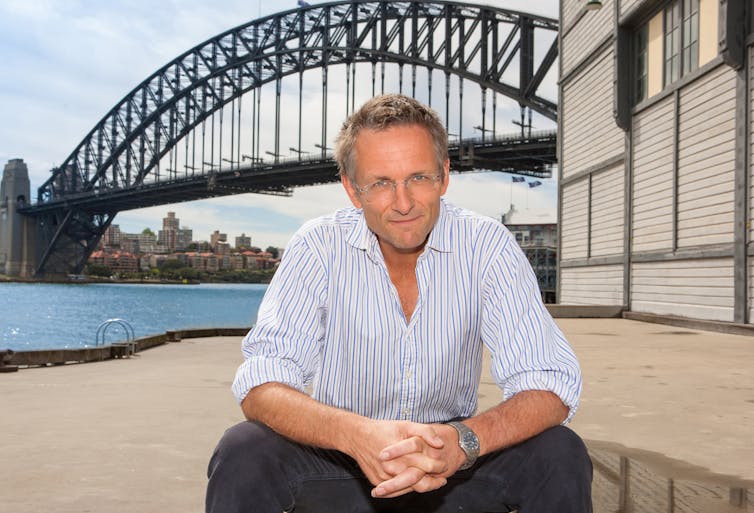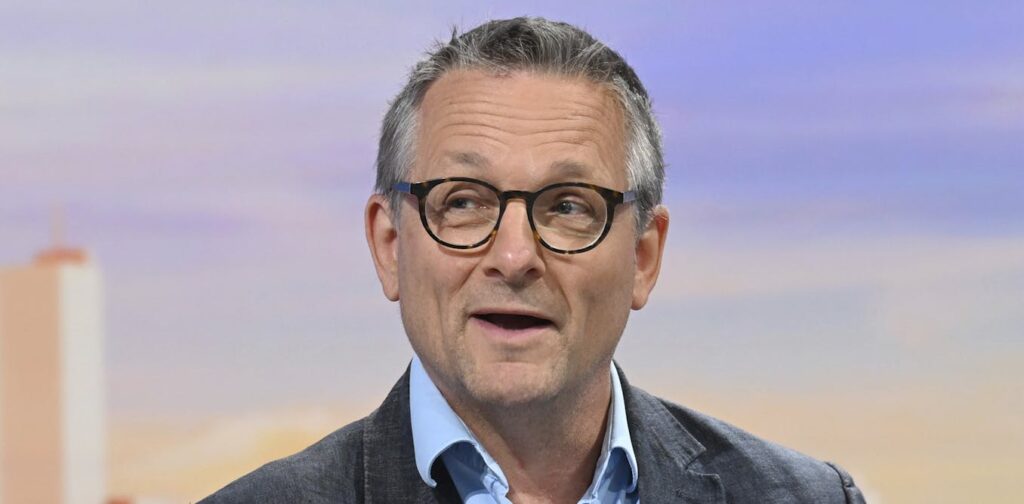Overnight we learned of the tragic death of Michael Mosley, who went missing while on holiday on the Greek island of Symi last week.
The well-known British doctor was a familiar figure in many countries, including Australia. Mosley was well known for his television shows, documentaries, books and columns on healthy eating, weight management, exercise and sleep.
During the days he was missing and since his death, media outlets have celebrated Mosley's career achievements, lauded for his diverse public connections and his relentless focus on science as the best guide for our daily habits.
From medicine to media
Mosley was born in India in 1957 and sent to Britain to attend boarding school at the age of seven. He then studied philosophy, politics and economics at Oxford University. After a brief stint in investment banking, Mosley chose to train in medicine at the Royal Free Hospital in London.
Instead of pursuing a career in clinical practice, Mosley began working at the BBC as a trainee assistant producer in 1985. Over the next few decades, Mosley continued to work for the BBC as a producer and presenter.
Mosley applied his medical training to journalism, becoming a popular public figure by investigating a wide range of subjects on health and wellbeing: in 1995, the British Medical Association named him Medical Journalist of the Year after he made a documentary about Helicobacter pylori, the bacterium that causes stomach ulcers.
Her other television appearances on diet, weight management, exercise and sleep have earned her Emmy, BAFTA and Royal Television Society Award nominations.
Over the past decade, Mosley has published several books on exercise, healthy eating, intermittent fasting, sleep and behaviour change. His books have sold millions of copies worldwide, including at least one million in Australia and New Zealand.
He recently embarked on a live theatre show tour with his wife, Dr Clare Bailey Mosley, which is another avenue for him to reach audiences with his important message.
A voice you can trust
Throughout his career as a journalist, Mosley has become a trusted voice on health and wellbeing. In his television show, Trust Me, I'm a Doctor, he used his medical qualifications to present a credible public discourse on health and wellbeing. His medical training also suggested credibility in researching the scientific literature on which his reporting relies.
At the same time, Mosley used simple terminology that captured the attention of a diverse audience.
Much of Mosley's output uses himself as an example: in his podcast series “Just One Thing” and associated book, for example, Mosley self-tests a variety of evidence-based behavioral habits on topics like eating slowly, yoga, listening to music, cooking, gardening, and drinking green tea (while also interviewing experts in each field).
His focus on intermittent fasting and high-intensity training was prompted by his diagnosis with type 2 diabetes, and his research into sleep health was informed by his own experience with chronic insomnia.

Mosley was popular with Australian audiences. Dominic Cleary/AAP
In the most extreme example, Mosley infested himself with tapeworms in order to study their effects on the human body.
He used himself as a human guinea pig to foster a connection with his audience and demonstrate the power of personal anecdotes.
Some controversy along the way
Despite his impressive accomplishments, Mosley continued to face criticism for his work due to divided opinions within the medical and scientific communities.
One of the main concerns was his recommendation of potentially risky diets such as intermittent fasting and restrictive diets such as the 5:2 diet and low-carb diets. Although there is evidence that intermittent fasting is a way to improve metabolic health and enable weight management, Mosley was criticized for not fully acknowledging the potential risks of these diets, such as their potential to lead to disordered eating habits.
It also raised concerns that his activism promoting low-carb diets would fuel a culture war focused on dieting, ultimately damaging many people's relationship with food and their bodies.
More broadly, in his efforts to make scientific concepts accessible to the general public, Mosley was sometimes criticized for over-generalizing science, and there were concerns that his synthesis of evidence was incomplete, without adequately addressing the nuances and tensions inherent in scientific evidence.
For example, Mosley invented the low-glycemic diet (a low-carb Mediterranean diet) which was criticized for its lack of scientific basis, and similarly, associating his name with e-cigarettes may have brought unnecessary attention to the topic, regardless of the underlying details.

Mosley influenced the eating habits of many people. KucherAV/Shutterstock
What can we learn from Mosley?
Overall, Mosley has been objectively successful in communicating scientific concepts to a large, engaged audience. Mosley has demonstrated that people want to consume scientific information through the news media, social media, podcasts, books, and more.
His passion and tenacity for using science to promote health and well-being has arguably underpinned public health efforts around the world.



